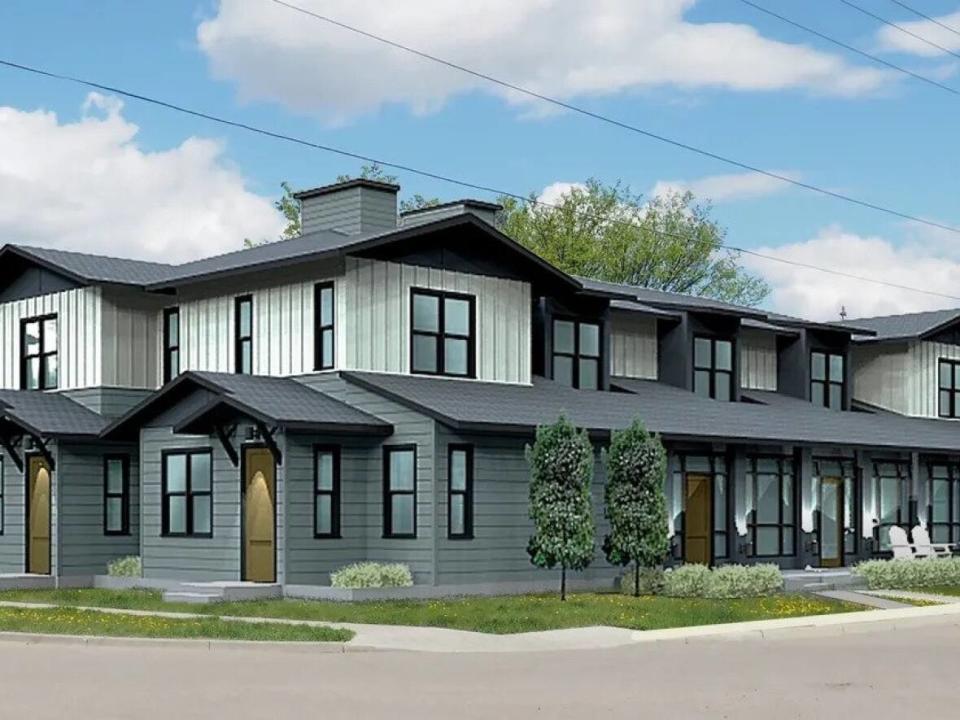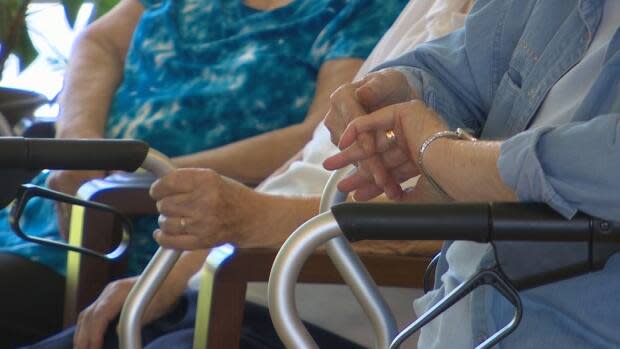'We don't have that much time': Inglewood seniors disappointed by delay of small-scale care home

Small, affordable and built with seniors in mind.
That's the idea behind Elderhouse — a proposed 17-unit elder care home in the Calgary neighbourhood of Inglewood that aims to help seniors age in their community.
After waiting on provincial funding for almost four years, the non-profit behind Elderhouse says it will have to re-apply for federal funding and land use permits after finding out this week that the provincial funding stream will not be released until next year.
Jack Long Foundation executive director Shirley-anne Reuben says more needs to be done to ensure all levels of government are on the same page when it comes to housing for seniors.
Reuben says there has been interest and support for Elderhouse from different agencies and at various levels of government. Jack Long Foundation purchased land and received permits from the city. It got federal funding for the project and has been supported by Alberta Health Services throughout the process.

However, with its land use permits expiring after already being renewed twice and federal funding contingent on provincial funds, Reuben says this is "just an example of how vision and policies are really not aligned, and vision at three levels [of government] is not aligned."
"The fact is we do have to go through the whole process again," she said.
In its 2022-2023 budget the province put forward $3.7 billion for continuing care programs. Of that money, Alberta Health spokesperson Lisa Blahey said $204 million will go toward "the modernization and expansion of continuing care capacity."
Blahey said one of the government's top priorities is "to transform the province's continuing care system to be more responsive to the needs of Albertans now and in the future."
"The continuing care capital program, small homes stream, is currently under development and anticipated to launch in the first half of 2023. It will be several months before a small homes grant stream is open to receive proposals," she said.
Rueben says the foundation was waiting on $2 million in funding and is still working with the province to ensure it is able to access the 2023 funding.
Affordable, appropriate housing essential for seniors
Elderhouse started with conversations with seniors in the area to find out what kind of home they wanted. Reuben says seniors wanted a place where they could live while getting assistance but remaining active in their communities.
"The concern is when you don't have a lot of money you end up in a nursing home, usually far away from where you are. You don't need medical support. You just need some help, maybe meals prepared ... and someone in house."
According to a report by Statistics Canada, Canada's 85 and older population grew by 12 per cent between 2016 and 2021 and is set to triple by 2050. Reuben believes these trends show just how important it is for places like Elderhouse to exist, especially as the COVID-19 pandemic has blown the lid on many issues in large-scale, long-term care facilities.
"We have this aging population and yet we're not planning ahead because it will become a problem," said Reuben.

She also says a lack of affordable, appropriate housing for seniors is straining the health-care system.
"We've seen absolutely, person to person, where there's been seniors who were kind of stuck in the hospital for a month because there's no place for them to go, and they can't go home and live independently."
'A huge disappointment'
The wait for the project has been expensive. According to Reuben, the foundation is paying property taxes on what is essentially empty land, and the pandemic has limited its ability to fundraise. However, she says the largest expense is the emotional cost to those who would benefit.
"It's a huge disappointment for the organization but mostly for the people," said Reuben.
"So many seniors just feel unvalued, and that's the tough part to deal with. When I get the calls that say, 'When's your project coming? I'm feeling that I will need it soon.' And that's tough," she said.
One of those seniors is 86-year-old Elaine High, who has lived in Inglewood for almost 60 years.
"We knew everyone. We went to the same churches. Our children went to the same schools [and] played baseball and hockey together," she said.
As she enters her twilight years, High wants to continue living in the community she has called home for so long. She says Elderhouse would let her do just that.
"We would still be in an area that we know with people we know and, hopefully, it would be like a family thing," said High.
High says she hopes the project can come together soon so she is able to live in Elderhouse.
"We don't have that much time! We're going to be dead before we get it unless they hurry up and turn [it] around."
But Rueben is still optimistic about the project.
"We know people want to go there, and it is rare that you see seniors wanting to go with a supported living facility," she said.
For Rueben, Elderhouse has too many people counting on it to give up now.

